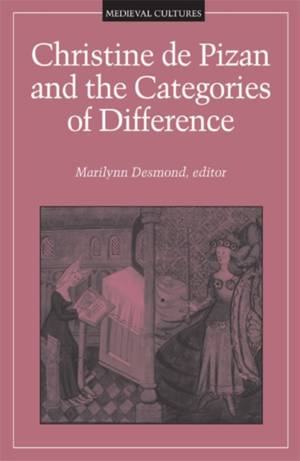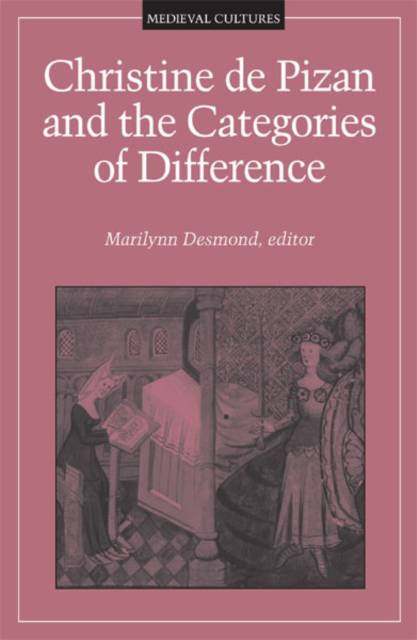
- Retrait gratuit dans votre magasin Club
- 7.000.000 titres dans notre catalogue
- Payer en toute sécurité
- Toujours un magasin près de chez vous
- Retrait gratuit dans votre magasin Club
- 7.000.000 titres dans notre catalogue
- Payer en toute sécurité
- Toujours un magasin près de chez vous
Description
Establishes the place of this medieval writer within considerations of "difference."
Christine de Pizan, an Italian-born writer in French in the early fifteenth century, composed lyric poetry, debate poetry, political biography, and allegory. At times complicit, at times subversive, at times revisionary, her texts constantly negotiate the hierarchical and repressive discourses of late medieval court culture. How they do so is the focus of this volume, which places Christine's work in the context of larger discussions about medieval authorship, identity, and categories of difference.
Contributors from the fields of history, literature, legal theory, art history, and medieval studies offer a truly interdisciplinary perspective on the Christine corpus. Their essays address Christine's textual interventions into the discourses of warfare and rape, her anxiety about the efficacy of education, and her adoption of a vernacular prose style. The authors situate Christine's texts within medieval medical discourse, debates between theology and philosophy, the tradition of Ovidian discourse, and the iconography of late medieval manuscript culture. They also explore the ways in which her work was shaped by institutional patronage, by its reception in early print culture, and by later compilation. Establishing Christine de Pizan's corpus as part of the legacy of critical feminist discourse, this volume ultimately demonstrates the great value of premodern textual cultures for postmodern accounts of difference.Contributors: Michel-André Bossy, Brown U; Cynthia J. Brown, U of California, Santa Barbara; Mary Anne C. Case, U of Virginia; Thelma Fenster, Fordham U; Mary Weitzel Gibbons; Monica H. Green, Duke U; Judith L. Kellogg, U of Hawaii, Manoa; Roberta Krueger, Hamilton College; Deborah McGrady, Western Michigan U; Benjamin M. Semple, Yale U; Charity Cannon Willard; Diane Wolfthal, Arizona State U.Spécifications
Parties prenantes
- Auteur(s) :
- Editeur:
Contenu
- Nombre de pages :
- 312
- Langue:
- Anglais
- Collection :
- Tome:
- n° 14
Caractéristiques
- EAN:
- 9780816630813
- Date de parution :
- 01-05-98
- Format:
- Livre broché
- Format numérique:
- Trade paperback (VS)
- Dimensions :
- 148 mm x 225 mm
- Poids :
- 408 g







